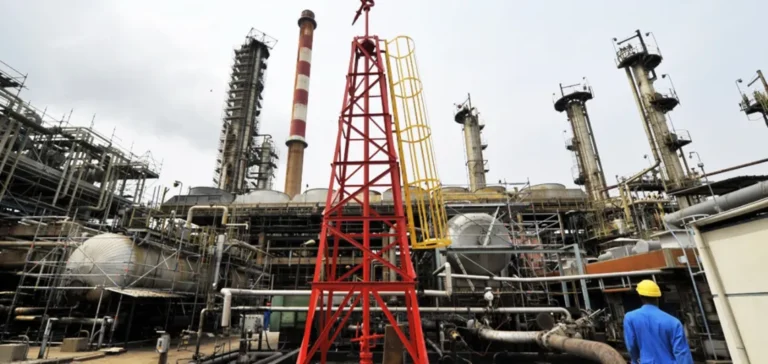The West African Development Bank (BOAD) has granted a loan of CFA60bn ($105.6mn) to the Société Ivoirienne de Raffinage (SIR) for the construction of a hydrodesulphurisation (HDS) complex in Abidjan. The project, estimated at CFA545bn ($959mn), aims to drastically reduce the sulphur content in locally produced diesel fuel in line with the environmental directive of the Economic Community of West African States (ECOWAS).
A project aligned with international standards
Built on the Vridi refinery site, the new complex will enable SIR to produce fuel meeting the AFRI 6 standard, aligned with European benchmarks. The goal is to bring sulphur content down to below 10 parts per million (ppm), from current levels that can exceed 2000 ppm. This technical change is expected to reduce sulphur dioxide (SO₂) emissions by 75%.
Integrated production unit and American technology
The complex will include three main units: a distillate hydrodesulphurisation unit (DHT), a hydrogen production unit (HPU), and a sulphur recovery unit (SRU). The technology, known as Unionfining, will be supplied by American group Honeywell UOP LLC, which specialises in oil refining solutions.
Strengthened capacity for regional markets
Founded in 1962, SIR is the largest refinery in French-speaking Africa, with a processing capacity of over 4.3mn tonnes of crude oil per year. A portion of its output is exported to neighbouring markets. This modernisation will enable the company to maintain market access amid tightening regional standards.
Strategic BOAD support within the WAEMU region
This funding falls within the BOAD’s Djoliba 2021–2025 strategy, which supports infrastructure projects contributing to energy transition across the eight countries of the West African Economic and Monetary Union (WAEMU). The complex is expected to come online in 2029, following the groundbreaking by Ivorian Prime Minister Robert Beugré Mambé.






















